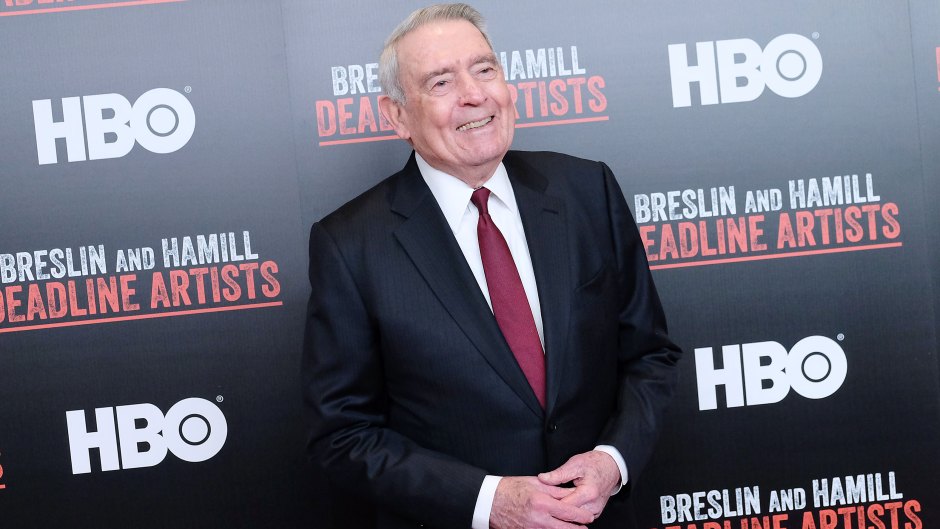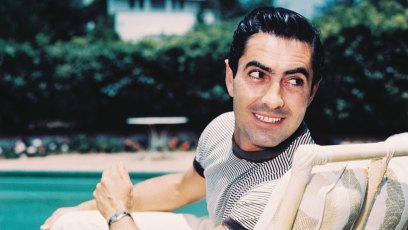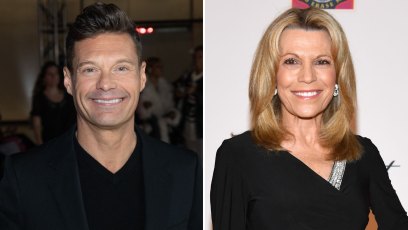
Kristina Bumphrey/StarPix/Shutterstock
Veteran Journalist Dan Rather Discusses His Marriage, Kids and One Amazing Career
Few newscasters in history have had as distinguished a career as Dan Rather, who spent 44 years at CBS News and is starting the eighth season of The Big Interview With Dan Rather, his AXS TV show. Now 88, he laughs when asked about retirement. “I can’t say I never think about it, but I don’t think about it very long,” Dan tells Closer from New York, where he lives with Jean, his wife of 63 years.
“My parents and their parents were hardworking people, and I love journalism,” he says. “So long as I have my health, I’d like to go full-throttle forward. I would much rather wear out than rust out.”
Congratulations on eight seasons of The Big Interview. Any highlights for you?
“I think we’ve done 155 interviews — that number staggers me. Willie Nelson is an old friend, and he’s very intelligent with a wide range of interests. Dolly Parton is direct and candid with a wonderful sense of humor. This season I thought Debbie Harry from Blondie would be very standoffish, but she gave very intelligent answers and got pretty deep about serving as a muse for Andy Warhol.
Which interview surprised you most?
“Ringo Starr — so approachable, but he had an airplane to catch. The lady in charge said, ‘He’s only got 12 minutes.’ I said, ‘We can’t.’ She was nice, but it was her way or the highway, so we agreed. After about 20 minutes, I changed the subject to a charity he’s very interested in. So it was kind of a struggle to keep him in the chair, but he was so good-humored about it, and I think we got an hour!”
You interviewed members of R.E.M., whose 1994 song “What’s the Frequency, Kenneth?” paraphrased a man who attacked you on the street in 1986. What are your feelings about that now?
“Pretty much what they were in 1986. A lot of water has crossed under bridges, but R.E.M. couldn’t have been better to me. When the song came out, I didn’t quite know what to make of it at first. But we stayed friends.”
What other interviews are highlights?
“Martin Luther King Jr. in the early ’60s. Dr. Nelson Mandela on the night that he was released after 27 years in prison. I’ve talked to every president since Harry Truman. And when I interviewed Saddam Hussein during the first Gulf War in [the Republican] Palace in Baghdad, I didn’t have anyone with me. That was a tense and anxious time.”
Any moment that set you on your path?
“I had rheumatic fever from roughly age 11-and-a-half to 14. It was almost as bad as polio — it could cripple you and there was no known cure. So I was bedridden for the better part of those years and the radio became my constant companion. It was World War II. I heard great correspondents — Edward R. Murrow, Eric Sevareid — from faraway places, leading what seemed to be adventurous lives doing meaningful work”
You came to national prominence covering John F. Kennedy’s assassination in Dallas in 1963. What was that like?
“An emotional earthquake, a sledgehammer to the heart. It was a struggle to contain my emotions, let my professional vision be my laser beam–like focus. I remember thinking, I’ll probably never tell a story of that equal.”
How would you describe your time at CBS?
“I can be as dumb as a brick wall, but I’m smart enough to know that I was blessed to be there for 44 years. For 24, I was anchoring managing editor of the CBS Evening News, and spent a good deal of time on 60 Minutes. This was a magic time, beyond a dream. Far beyond anything I could have imagined. The greatest thing about it was the camaraderie. It was a kind of mystical, magical kingdom, where every correspondent was like a knight, and we were after truth, justice and the American way. Others might laugh and say it wasn’t true. To a degree, that’s right. But because we believed, it made all of us better and made it a better place.”
Any lessons from being an anchor?
“The importance of gratitude, humility and modesty. Everyone tells you how great you are, so you’re constantly inhaling NASA-grade fuel for the ego. It can consume and ruin you. Fortunately, every time I would begin to get bigheaded, family and friends brought me back to being grounded.”
You were fired in 2006 after you aired a story alleging that President George W. Bush went AWOL during his time in the Texas Air National Guard. An investigation said the piece disregarded “fundamental journalistic principles.”
“The process of getting to the truth was not perfect and we made some mistakes, but we reported a true story. I was disappointed that corporate management wouldn’t stand by it, but I walked out with my head high. I wish it could have ended a different way, but life is not like that. If you’d told me then that I’d have another 14 years to work full time, I’d have had a hard time believing you.”
Clearly your wife, Jean, was a rock. How did you meet, and what’s the secret to your long marriage?
“I was working at KTRH radio in Houston and she came to work in a secretarial position. In my case, it was love at first sight. Not only was she so intelligent, she was smoking hot, and it took me a while to convince her to marry me. I don’t think there’s any secret about it. You have to work at it, and having two wonderful children has helped. Mostly thanks to Jean, they have grown into very good adults. When I was covering the Civil Rights Movement, there was a year when I was only home for 31 days, and I was in Vietnam for the better part of 1965–’66. But I never take it for granted. I’m still working at it. Because if for any reason Jean left me, I wouldn’t be worth a damn.”
How are your daughter Robin, 61, son Danjack, 59, and grandkids doing?
“Robin is in business for herself — she’s an expert on sustainability and an environmental activist. And Danjack just retired after maybe 33 years as an assistant district attorney in Manhattan; he’s a world-class human. His son Martin is [23] and running a political campaign for a candidate for state legislature. Robin’s son Andy is 18 and just returned from Nepal after taking some time off from college to do public service work there.”
What are you up to now?
“I’m completely quarantined in my home in New York, but still continuing to work. I don’t like to talk about age, but at 88 I’m in a prime age group to be susceptible to this virus.”
Any mottos you live by?
My maternal grandmother said, ‘Strong timber does not grow at ease. The stronger the breeze, the stronger the tree.’ That’s kept me in pretty good stead. My brother Don’s coach had a saying: You are what your record is. I am what my record is, and I’ll stand on that.”
For more on this story, pick up the latest issue of Closer Weekly, on newsstands now!





































